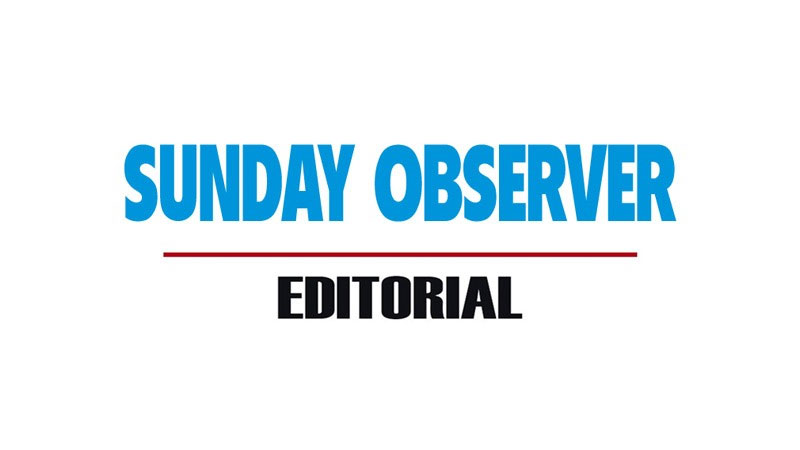Unlike many Asian countries where political volatility is the norm, Singapore rarely witnesses political upheavals of any kind. In this sense, the City State is a bastion of stability, both politically and economically.
Singapore’s success on the world stage – from the sleepy backwater it was when Sir Stamford Raffles took control in 1819 to the financial powerhouse it is today – can largely be attributed to the vision and perseverance of one legendary Statesman – Lee Kuan Yew. Incidentally, he was an ardent admirer of Sri Lanka who wanted to model Singapore after that Pearl of the Indian Ocean, but was dismayed by its downward spiral in an ethnic imbroglio.
Thus he made racial amity a cornerstone of his policies for Singapore and curbed corruption to the maximum possible extent. There may be other reasons, but these are the two main factors that transformed Singapore to the status of a developed nation while its neighbouring countries stagnated.
Lee Kuan yew was succeeded in the Premier’s position by his son Lee Hsien Loong. One may call it nepotism or dynastic politics, but unlike in many other Asian countries where it is a synonym for corruption, Loong (72) took Singapore to an even higher level.
But in grooming a set of future political leaders outside his family circle – the so-called 4G group – he also made certain that Singapore would get out of dynastic politics. In his final major speech on May 1, Lee urged people to rally behind the incoming Prime Minister and emphasised that Singapore’s stable politics had enabled long-term planning.
Now, in a seismic shift for the tiny but mighty country, People’s Action Party (PAP) 4G frontliner Lawrence Wong has been sworn in as Singapore’s first new Prime Minister in 20 years. In fact, he is only its fourth leader since Independence in 1965 and the carefully calibrated power transfer is aimed at ensuring continuity in the wealthy City State. Wong is also the first Singaporean leader born after its Independence.
After assuming office in a televised ceremony, Wong pledged to lead “with humility and a deep sense of duty” towards Singapore and its six million people. He promised to devote “every ounce of my energy” to them. At just 51, time and age are firmly on his side as he seeks to continue the momentum that has propelled Singapore to its prime position. Wong’s expertise as an economist and his retention of the Finance portfolio will also come in useful as Singapore faces global economic headwinds.
Wong rose to prominence in 2020 as co-chairperson of the Pandemic Task Force (PTF) and was named Lee’s successor in April 2022 after a series of consultations between the political leadership and his peers. He was promoted to Deputy Prime Minister and led a high-profile public consultation exercise to chart a “Social Compact” between the Government and the people on dealing with issues such as sustainability, inequality and employment.
“This is a passing of the baton not just between leadership teams but also across generations,” Wong said. “We will lead in our own way. We will continue to think boldly and think far.” These are bold words that Singaporeans need to hear now more than ever, but surprisingly, Wong was not the first choice for the PM’s post. That honour went to Heng Swee Keat, a former Central Bank Chief and Education Minister. However, he withdrew his nomination in 2021. This paved the way for Wong’s prominence and rise. Premier Wong has warned that Singapore must brace for a “messier, riskier and more violent world” by staying united and blazing new trails. Indeed, these words apply to all countries in our region, not just Singapore.
Being at the crossroads of the East-West shipping routes, Singapore literally has to straddle the region’s increasingly volatile geopolitical waters, with a rising China on one side and the US and its allies on the other. However, Singapore has been adroitly balancing its foreign policy imperatives without falling into the orbit of any side. Singapore’s own unique governing model may have something to do with this ambivalence. Nevertheless, Singapore has been quietly building up its defence capacity and capability to face any eventuality. Wong has received the reins of his island nation at a critical juncture in this context.
Domestically, Premier Wong will have to worry about factors such as the falling birth rate, the housing and rental crisis, the Climate Crisis (a critical factor for a small island) and even the repercussions of a still-reverberating corruption scandal involving former senior Minister S. Iswaran as well as a romantic scandal involving two PAP personalities. These have unfortunately smeared Singapore’s zero-corruption reputation and Wong will have to crack the whip harder in this regard. A resurgent Opposition could also pose a greater challenge to the PAP at the next General Election due in 2025, though a victory for the PA is certain at this stage.
Relations between Sri Lanka and Singapore have always been excellent and to this day, Singapore is one of the very few countries that grant visa-free access to Sri Lankan citizens. The two countries have also signed a Free Trade Agreement (FTA) that will spur two-way trade by eliminating tariffs for 80 percent of all tariff lines through staging periods of up to 15 years. There is no doubt that this robust relationship will reach greater heights under Premier Wong’s watch.




